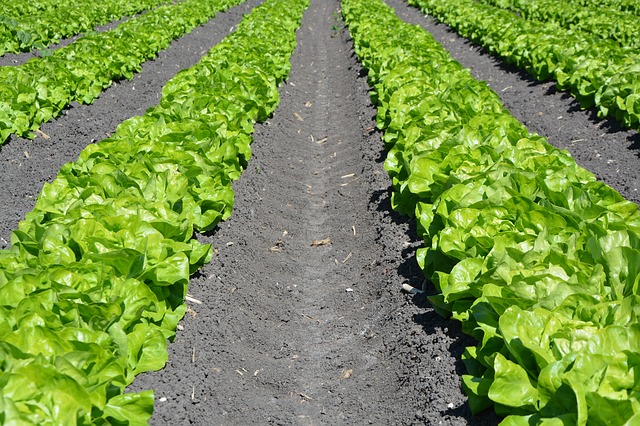By Lynda Kiernan-Stone, Global AgInvesting Media
Currently there are 263 herbicide-resistant species across 71 countries, making weed control and eradication harder than ever. However, traditional agricultural herbicide usage is tied to multiple issues and challenges – herbicide resistance, the inability for application in the rain or in windy conditions, the tendency to run-off into waterways, and stricter regulations and cases of litigation, to name but a few.
And, as regenerative farming and sustainable means of food production continue to gain traction with growers, consumers, and investors alike, non-invasive and non-chemical means of weed control are becoming ever-more appealing.
Enter Aigen, a robotics startup with a mission to regenerate soil on a global scale through its scalable, solar-powered robotics platform that just raised $4 million in Seed funding led by NEA, with participation from Global Founders Capital, AgFunder, and ReGen Ventures.
Co-founded by Rich Wurden and Kenny Lee, who met in a Slack community called Work on Climate, Aigen, which means “farmer’s right to own” in old German, is building an autonomous platform that manages crops without the use of inputs detrimental to soil’s carbon storage potential. Navigating crop rows, Aigen’s robot can distinguish between harmful and benign weeds – leaving the harmless weed in-place to help sequester carbon.
The company puts forth that studies, including the Special Report on Climate Change and Land issued by the UN Intergovernmental Panel on Climate Change (IPCC), show that 60-75 percent of soil carbon has been lost in agricultural land – and by bringing affordable alternative practices to play, its platform can regenerate soil health and help the world’s farmers deal with labor shortages, while offering closed-loop data collection, analysis, and action, without the use of diesel fuel or pesticides.
With a focus on weeding and propagating, Aigen’s robots use a combination of sensors, computer vision tech, and specialized software to monitor crops in the field. By applying its abilities on a per-plant basis, Aigen eliminates the need for broadcast application of agro chemicals.
Equipped with backup batteries in case of cloudy weather, Aigen’s robots have a goal to be more than just weeders. The company’s premise is that, at its core, photosynthesis is carbon negative, with plants extracting CO2 from the air and returning carbon to the soil.
Aside from helping meet demand for organic and chemical-free produce, increasing crop yields, reducing inputs and their costs, and combating climate change, robotic platforms such as Aigen’s also address the scarcity of labor – a more nebulous, but critical, pain point in the food production process.
“Aigen’s technology leverages best-in-class AI and robotics to provide an elegant solution to several of humanity’s biggest problems,” said Andrew Schoen, partner, NEA. “Their product unlocks nature’s superpower to sequester substantial amounts of atmospheric carbon at planetary scale.”
Henry Magun, associate with NEA, added, “Rich and Kenny offer a unique combination of hardware, software, and agriculture expertise. In a very short period of time, they developed a novel solution that is easy to deploy, convenient to manage, and most of all, helpful to farmers.”
With a diverse, highly qualified team of agricultural and technical professionals from the likes of Tesla, Google, Boeing, SpaceX, and Siemens, Kenny Lee commented on Aigen’s work saying, “As a father of two young kids, this is so rewarding because we’re building a better future for them.”
Right now, there are various ideations of weeding and field vision robots vying for investor capital. In April 2019, San Francisco-based FarmWise partnered with Michigan-based product development supplier Roush to develop and test autonomous vegetable weeding robots in the state of Michigan, and plans to go to production in 2020.
Earlier the following year, January 2020, RootWave in the UK raised a $7.2 million Series A led by V-Bio Ventures of Belgium, and Rabo Food & Agri Innovation Fund. Then, in September 2021, Seattle-based agtech innovator Carbon Robotics raised an impressive $27 million Series B from Anthos Capital, Ignition Partners, Fuse Venture Capital, Voyager Capital, Bolt, and Liquid2 Ventures.
For Aigen, now that it has secured backing from some of the investment class’ top-tier investors, the startup is opening a new lab space located in Kirkland, Washington, with plans for a ramp-up this year that will see it launch its platform on a global scale.
*The content put forth by GAI News and its parent company HighQuest Partners is intended to be used and must be used for informational purposes only. All information or other material herein is not to be construed as legal, tax, investment, financial, or other advice. GAI and HighQuest Partners are not a fiduciary in any manner, and the reader assumes the sole responsibility of evaluating the merits and risks associated with the use of any information or other content on this site.
– Lynda Kiernan-Stone is editor with GAI Media, and is managing editor and daily contributor for Global AgInvesting’s AgInvesting Weekly News and Agtech Intel News, as well as HighQuest Group’s Oilseed & Grain News. She can be reached at lkiernan-stone@

